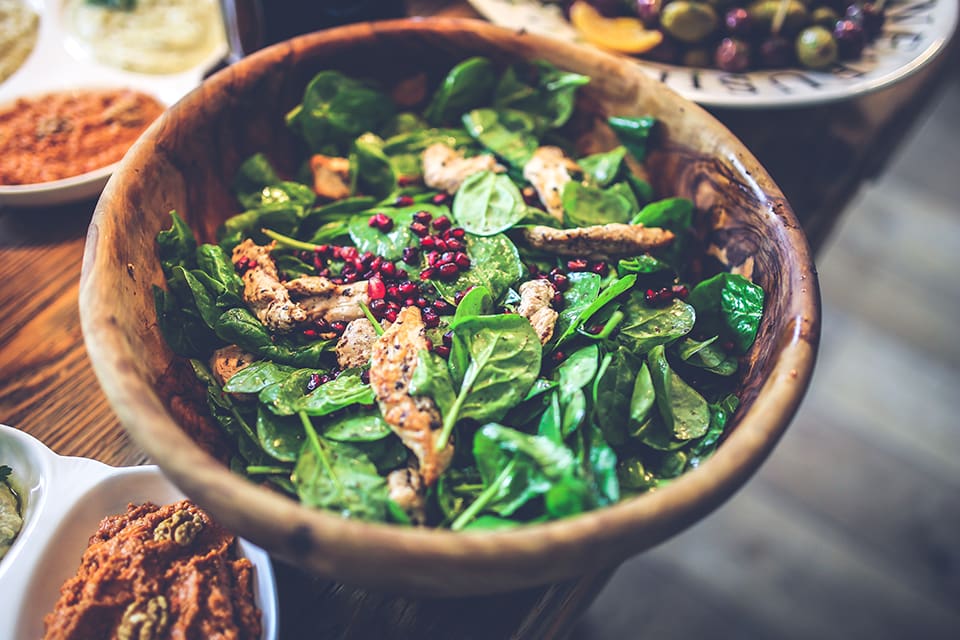When we’re going through feelings of depression, anxiety or more commonly stress, nutrition isn’t what immediately springs to mind.
When we’re going through feelings of depression, anxiety or more commonly stress, nutrition isn’t what immediately springs to mind. But in fact our mental performance, mood and energy depend on a complex variety of nutrients, which not only form the building blocks for our brain but also assist in the production of neurotransmitters and hormones, which play an essential role in regulating our emotions. At Food for the Brain, their mission is to generate awareness about the link between nutrition and mental health. Their not for profit clinic, the Brain Bio Centre offers a unique approach to treating a wide spectrum of mental health issues with a variety of tools. To find out more please visit www.foodforthebrain.org
There are key steps we can take to nourish ourselves so that we are more able to cope with the challenges life throws at us.
1. Eat blood sugar balancing foods
A vital way of preventing our moods from fluctuating and exacerbating stress and anxiety is to ensure we are keeping the sugar levels in our blood balanced. This means avoiding refined and processed foods such as white pasta, white rice, white bread, baked goods, confectionary and sugary drinks. These foods are depleted of nutrients and do nothing more than spike our blood sugar levels, which then crash very quickly leaving us feeling fatigued and craving for the next sweet mouthful to give us a quick fix. To ensure optimal energy levels throughout the day, replace these refined foods with whole grains such as brown rice, quinoa, oats, buckwheat and wholemeal wheat. Adding a good source of protein such as lean meat, fish, eggs and pulses to each meal will also help keep your energy levels up.
2. Eat your Omega 3s
A key nutrient that is vital for our brain health is Omega 3. This essential fatty acid has properties which protect our cells and nerves ensuring their proper function. As we cannot synthesise it in our bodies, it is important we get it from our diets.
Research has shown how deficiency in omega 3 can affect the efficiency of nerve transmission and cognitive function. These fatty acids are a vital component of the membranes of our cells, which affect the functioning of neurotransmitters such as serotonin and dopamine. These neurotransmitters play an important role in stabilising our mood and other aspects of mental health such as motivation and clarity. To increase your intake of Omega 3 fat think SMASH, a useful way to remind you of the oily fish with the most Omega 3 content – salmon, mackerel, anchovies, sardines and herring. You can also get Omega 3 in vegan sources such as ground flaxseeds or flaxseed oil, chia seeds and walnuts.
3. Load up on B Vitamins and Antioxidants
The family of B vitamins include B3 (niacin), B5 (pantothenic acid), B6 (pyridoxine), B9 (folate) and B12 (cyanocobalamin). They are vital for helping to deliver oxygen to the brain cells as well as generating energy and maintaining proper function of neurotransmitters. Without optimal amounts of these vitamins we can become anaemic leading to fatigue, low mood and difficulty concentrating. Increasing your levels of B vitamins through food also means you’ll be getting a balanced source of antioxidants which also play a vital role in the health of our brain. Antioxidants are substances that are predominantly found in vegetables and fruits which help to protect the cells of our body from damage. Essentially, they’re antidotes to oxidation, a process which is caused by things like exposure to pollutants, cigarette smoke and toxins from the food we eat. They are also vital for supporting thousands of chemical reactions in our bodies such as synthesising hormones, immune cells and creating energy. Avoiding the brain pollutants such as those listed above and eating a diet rich in the following foods will give you optimal amounts of B vitamins as well as key antioxidants which can help to stop the chain reaction of damage, allowing your brain cells to regenerate and perform at their best:
- Green leafy vegetables: kale, spinach, chard, broccoli, mustard greens
- Colourful vegetables: peppers, carrots, tomatoes, sweet potato, squash
- Fruits: citrus fruit, berries, kiwi, red grapes
- Nuts and seeds
- Pulses such as lentils and all types of beans
- Organic poultry and grass-fed beef
- Organic dairy such as yoghurt, cheese, milk and eggs
4. Eat ‘serotonin boosting’ foods
You may have heard of the so called ‘happy neurotransmitter’ called serotonin, it plays an important role in stabilising our mood and social behaviour as well as appetite, digestion, sleep, memory and sexual desire. In order to have healthy amounts of this neurotransmitter we need to make sure we are getting enough of an essential amino acid called L-Tryptophan through our diets. This is an important component of serotonin and is necessary for its synthesis. We can find abundant amounts of this essential amino acid in foods such as:
- Eggs
- Poultry and red meat
- Soy (tofu, tempeh, soy beans)
- Nuts and seeds
- Pulses
- Oats
Click to download the article here
